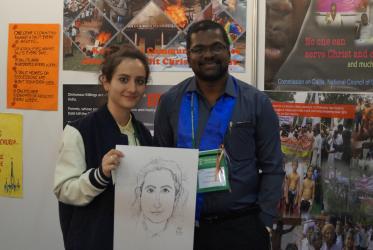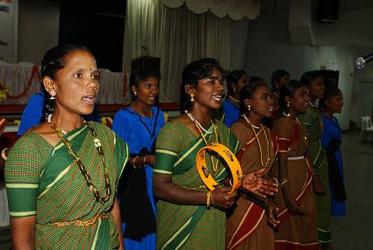Displaying 1 - 12 of 12
14 November 2019
Paving the way for ecumenical studies, learning English in Bossey
24 September 2018
In Argentina, stirring journey for human rights continues
01 September 2017
“No one can serve Christ and caste!”
07 November 2013
Magali Cunha joins Brazil’s National Truth Commission
28 March 2013
Churches celebrate Week of Prayer for Christian Unity
23 January 2013




